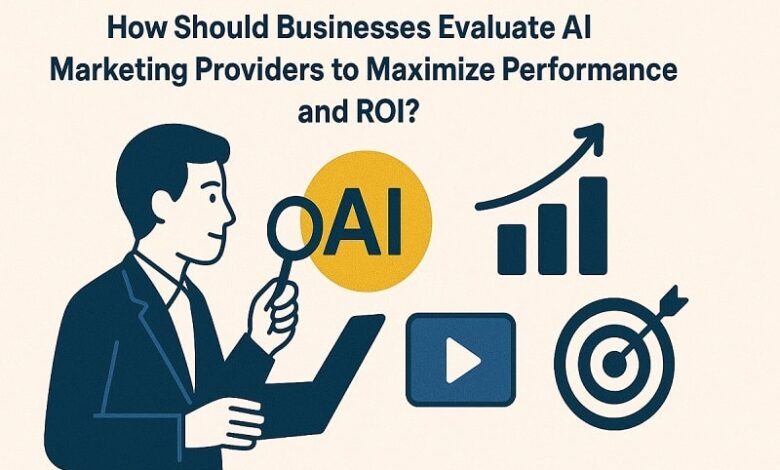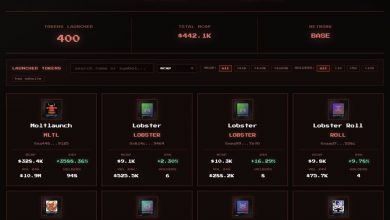
The marketing has dramatically shifted. All businesses face an overwhelming situation while choosing the right AI solutions that actually give results. Many smart companies recognize that not all AI marketing providers are equal, and the wrong choice can drain budgets while delivering minimal impact. The key in understanding how to evaluate AI marketing providers systematically, focusing on concrete capabilities ratehr than just promises. This evaluation process requires examining real world performance, integration capabilities and measurable outcomes. Companies that master this evaluation framework gain a competitive advantages.
What is AI in Decision Making for Marketing Providers?
AI-powered Data processing
AI is transforming the huge amount of raw marketing data into actionable insights by processing customer information in real time. Not like traditional AI analytics, which rely on historical data, AI systems identify patterns and predict customer behavior. This capability of AI allows marketers to make decisions in a split second about marketing campaigns, ad placement, and content personalization. This technology processes multiple data streams like purchase history, social media engagement, website behaviour, and demographic information to create complete customer profiles.
Predictive Analytics
Modern AI systems excel at forecasting customers’ actions even before they occur. These platforms analyse the historical customer data and predict prospects are more likely to convert, when the existing customer should be churn and what product they’ll likely want. AI marketing platforms comparison reveals the top tier solutions that can predict customer lifetime value with 85% accuracy, allowing businesses to allocate the resources effectively. The technology also identifies the optimal timing for marketing message, making sure campaigns to customers when they are most receptive.
Automated Campaign Optimization
AI reduces guesswork of marketing campaigns by continuously testing and refining the strategies based on real time performance data. These systems conduct an A/B testing and identifies the most effective combination that human marketers might never discover. This automation extends beyond paid advertising to email marketing, social media posting, and content distribution across multiple channels.
Best Marketing Tools
Specialized AI Tools for Specific Functions
Niche AI tools excel in particular marketing functions such as content creation, customer service, or conversion optimization. These solutions often integrate with broader marketing platforms to enhance specific capabilities. They’re ideal for companies wanting to test AI in specific areas before committing to comprehensive platforms. The AI proof of concept development approach allows businesses to validate AI value in targeted use cases before expanding to broader implementations.
Enterprise-Level AI Platforms
The enterprise solutions give comprehensive AI capabilities that integrate with existing marketing technology stacks. These platforms provide predictive modeling, advanced analytics and automated optimization across multiple channels. Best AI marketing tools in this category includes customer journey mapping, advanced attribution modeling and real time personalization engines. They usually requires implementation time but deliver substantial long term value for organisations with complex marketing needs.
Mid-Market AI Solutions
Mid-market tools balance functionality with ease of use, offering powerful AI capabilities without requiring extensive technical expertise. Such platforms focus on specific use cases like social media management, email marketing and paid optimization. They provide intuitive interfaces and pre-built templates that allow marketing teams to implement AI strategies quickly. AI marketing vendor evaluation in this segment reveals that successful tools offer strong customer support and extensive educational resources to help teams maximize platform value.
Importance for Marketing Providers
Competitive Differentiation
Marketing providers who embrace AI capabilities separate themselves from competitors still relying on manual processes and gut instincts. AI marketing vendor evaluation shows that companies using advanced AI tools achieve 2.5x higher conversion rates and 40% lower customer acquisition costs compared to traditional methods. These providers can offer clients more sophisticated targeting, personalized experiences, and measurable results that justify higher service fees. The technology becomes a core differentiator that attracts premium clients seeking cutting-edge marketing solutions.
Scalability and Efficiency
AI allows marketing providers to handle large client without increasing the staff costs. Automated tasks manage the routine tasks like performance monitoring, campaign management and basic reporting, freeing human staff to focus on more important tasks. This scalability allows providers to grow their business and maintain the service quality.
Enhanced Client Value Delivery
Providers equipped with AI tools deliver more value to clients through deeper insights and better results. These systems identify opportunities that human analysis might miss, such as micro-segments within target audiences or optimal bid strategies for specific times and locations. AI marketing platform comparison demonstrates that clients working with AI-enabled providers see 60% faster campaign setup times and 35% better ROI compared to traditional approaches.
Real World Use Cases of AI in Decision Making
E-commerce Personalization Success
The system analyze purchase history, browsing patterns and demographic data to create individualized product recommedations and customised email campaigns. The AI identified that customers who viewed certain product categories were 3x more likely to purchase complementary items when shown specific recommendations within 24 hours of their initial visit.
B2B Lead Scoring and Nurturing
A software company transformed their sales process using AI to score leads and automate nurturing campaigns. The system analyzed website behavior, email engagement, and company data to identify prospects most likely to convert. Best AI marketing tools in this category helped the company increase qualified leads by 180% while reducing sales cycle length by 35%.The AI automatically triggered personalized email sequences based on prospect behavior, ensuring relevant content reached the right people at optimal times.
Multi-Channel Campaign Optimization
A global brand used AI to coordinate campaigns across social media, display advertising, email marketing and search engines. The system automatically redistributed budget between channels based on real-time performance data and predicted customer lifetime value. The AI finds that certain customer segments responded better to specific channels combination, allowing more targeted and effective marketing strategies.
Conclusion
Successfully evaluating AI marketing providers requires a systematic approach that prioritizes measurable outcomes over impressive demonstrations. Businesses must assess technical capabilities, integration requirements and long term scalability rather than falling for superficial features. The most effective AI marketing providers demonstrate clear ROI through case studies, give transparent pricing models and provide support during implementation.
Smart businesses recognize that AI MVP development allows them to test provider capabilities with minimal risk before committing to larger partnerships. The evaluation process should include pilot programs, detailed technical reviews and reference checks to make sure chosen providers can deliver on their promises and adapt to evolving business needs.




